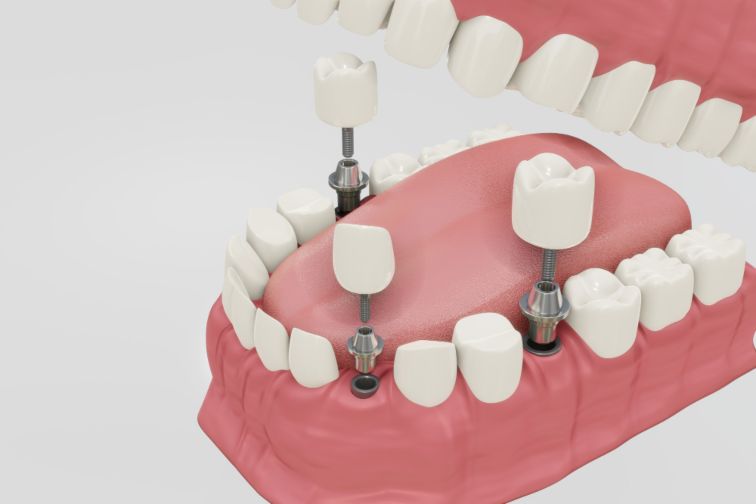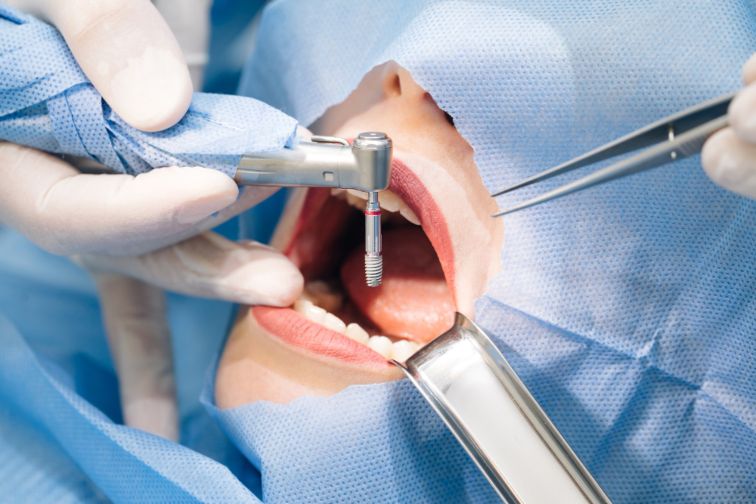
Do you have missing teeth and are looking for implants, but don’t want to undergo the complicated surgery process of conventional dental implants, or are unable to get implants because of the lack of bone mass in your jaw to hold conventional dental implants? Mini dental implants will also do the job, as they have all of the benefits of conventional dental implants.
If you are looking for implants, you should have a check-up with your dentist to see which treatment is best for you.
Mini dental implants are implants that are used to replace one or several teeth, or used to hold removable dentures in place. The implants are inserted into the jawbone with a one-piece screw that is less than 3mm in diameter, with a ball-shaped end that protrudes from the jawbone. Mini dental implants can replace most types of teeth and can be used in place of bridges, dentures, and fixed crowns and can secure lower arch dentures. The part that is implanted into your jaw is made from titanium and can become permanently fused with your bone.
There are some conditions when it is not recommended to get implants. Mini dental implants are especially not recommended for children or anyone whose mouth isn’t fully developed because the implant can become surrounded by the bone when it grows. Mini implants don’t require as much bone density as conventional implants, but you might not be able to have implants if you have severe decay and bone loss.
Certain held conditions can make you unable to receive mini dental implants:

In order to see where the implants will exactly be placed, a dental X-ray is needed. After the X-ray, the dental implant procedure is as follows:
In most cases, mini dental implants don't need holes to be drilled prior to installation because the threads of the screw are enough to secure themselves on the jawbone. The steps of the procedure may vary, in case you need more than one implant, the posts are placed before any replacement teeth are attached. No sutures or stitches are required for mini implants.
There are many benefits to using mini dental implants:
Mini implants aren’t usually a permanent solution for tooth loss or extracted teeth. These implants are called temporary anchorage devices by orthodontists. These implants can be placed immediately when a tooth leaves an opening, after extraction or loss. The implant can be done quickly, often in the same appointment as a tooth extraction, however, mini implants aren’t meant to last a long time.

Depending on your situation, you can have regular or mini implants to treat missing teeth. Regular dental implants involve more invasive surgery that needs multiple appointments and can last for several months. Mini implants on the other hand can be installed very quickly, often in one appointment. Mini implants are great when there isn't much room for a bigger implant, but they aren't meant for upper teeth and molars because those teeth are used the most when chewing. Mini implants can also need to be replaced prematurely if you grind your teeth or have bruxism. On the other hand, conventional implants are much more resilient and last permanently, but you could be unable to get them because of low bone mass or some of the previously mentioned conditions.
Dental implants should be taken care of the same as regular teeth. Good dental hygiene is very important for the longevity of mini dental implants because they aren’t permanent. It’s important to brush, floss and have regular appointments to make sure they stay intact.
Mini dental implants haven’t been in use long, only for about 20 years. Mini dental implants aren’t meant as a permanent solution for tooth loss and are only used as short-term treatment. The exact length of time they last isn’t precisely known and can vary from a couple of months to a few years before needing repair or replacement.

